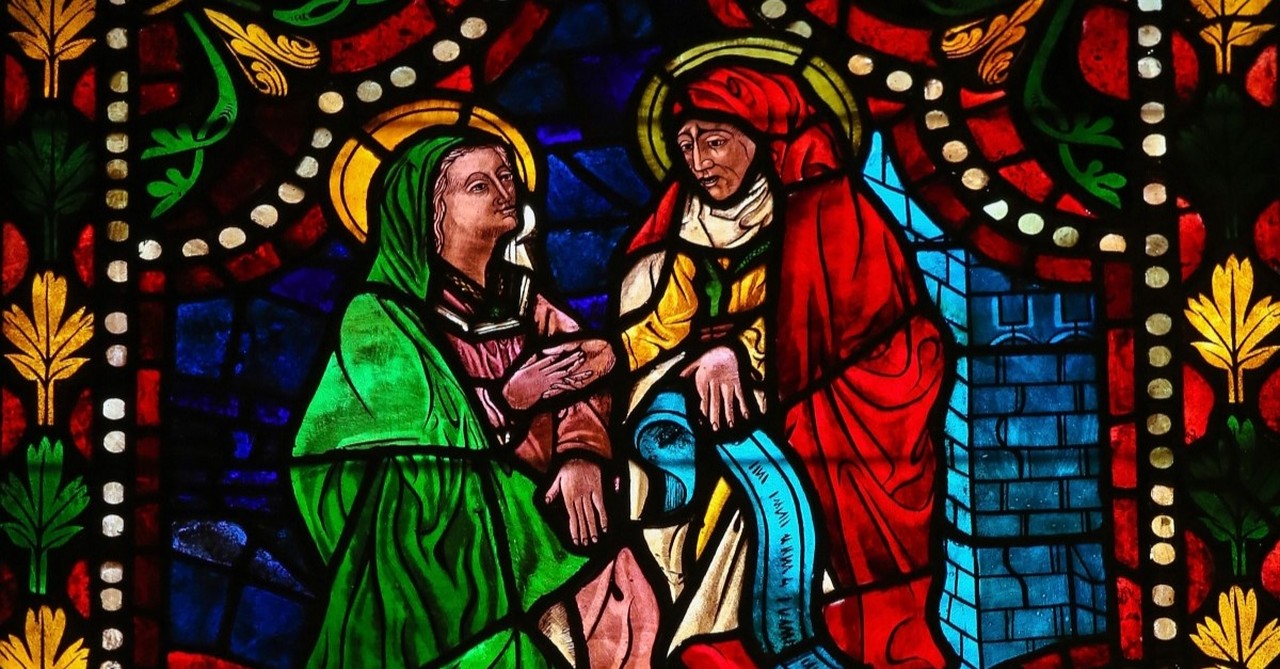First, we need to know a little bit about Elizabeth—and a little bit is really all we are given to read about her in the gospel. We learn from Luke 1:5-7 that she is from the priestly line of Aaron, and so is her husband Zechariah, who serves as a priest in the temple. We also learn that both are “upright in the sight of God, observing all the Lord’s commandments and regulations blamelessly . . . [but] Elizabeth was barren; and they were both well along in years.”
So, while we don’t read reports of her praying, a devout Jewish woman wanting a child was likely very fervent and very consistent in her prayers. When Elizabeth became pregnant, she thanked God for doing this for her, showing her favor, and taking away her disgrace—the first prayer we read from her (Luke 1:25).
But it was her prayer of celebration of what happened when she saw Mary that was most exciting. “When Elizabeth heard Mary’s greeting, the baby leaped in her womb and Elizabeth was filled with the Holy Spirit. In a loud voice she exclaimed, ‘Blessed are you among women and blessed is the child you will bear . . . Blessed is she who has believed that what the Lord has said to her will be accomplished.” (Luke 1:41, 45)
Elizabeth knew that she was also blessed by God and acknowledged it: “But why am I so favored that the mother of my Lord should come to me?” (Luke 1:43). Not only did she receive the blessing of the Holy Spirit similar to Mary (which it doesn’t appear that their husbands received), she was among the first to recognize and thank God for the Lord that Mary was carrying in her womb.
Photo Credit: ©Getty Images/digitalimagination


















